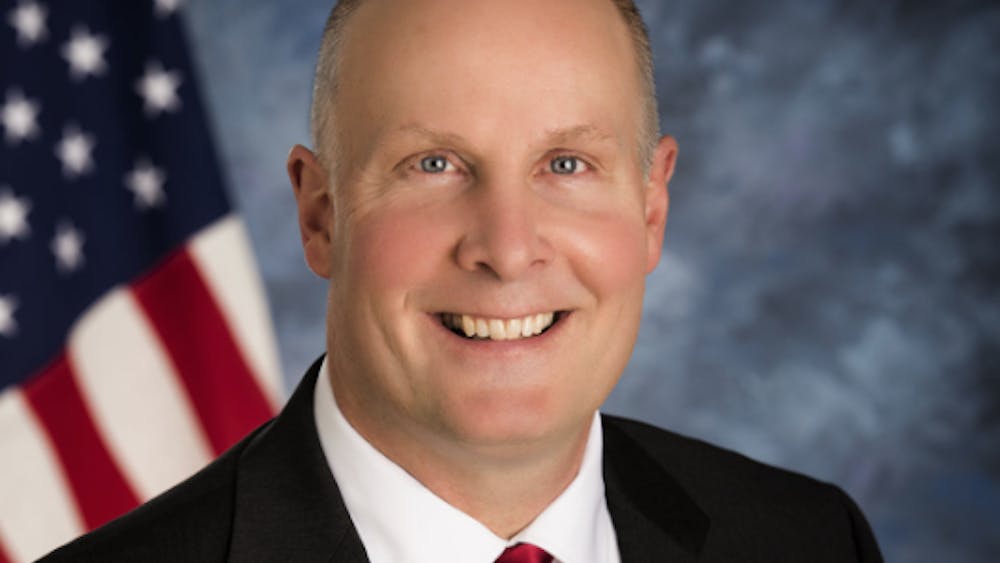Audiology program only in state to train midwives on newborn hearing loss

Dr. Shannon Palmer oversees newborn hearing screening and training midwives on how to screen for hearing loss in the audiology program's clinic.
Each year, one percent of babies are born at home in the state of Michigan. And each year CMU is the only audiology program in the state where midwives are trained how to screen hearing on newborns.
Shannon Palmer, assistant professor of audiology, supervises students in the on-campus Audiology Clinic, located in the Health Professions Building. Her main passion has been advocating for and teaching students to identify newborn hearing loss.
“What I have done is worked with the people from the state who train the midwives how to do newborn hearing screening,” Palmer said.
Newborn hearing screening has been in effect across the country for a while now said Palmer. Hospitals perform newborn hearing screening within 24 hours of a child's birth. Complications arise when a baby is born at home, and the midwife assisting the family does not know how to perform a hearing screening.
Palmer said while not many children are still born in the home, rather than a hospital, these are children who end up having unidentified hearing loss.
“A lot of research was done back before newborn screening was really common,” Palmer said. “(Those) who are born with hearing loss and don’t get identified or intervention early, end up having poor speech and language as they get older.”
Around 1,500 to 2,000 patients each year come to CMU's Audiology Clinic. Michael Stewart, director of the audiology program, said patients drive from a 50 mile radius, but some will come from the upper peninsula of Michigan and even as far as the southern United States.
Each graduating class of the audiology program at Central Michigan University has only 12 to 14 students in the four-year doctorate program. Although the program is small, it was one of the first in the United States to start offering a doctorate of audiology.
“People do not value their hearing,” Stewart said. “(Hearing loss) can cause a lot of problems physically and psychologically.”
Audiology is the study of hearing rehabilitation, using the hearing aid as the main tool. Students in the program also learn about other topics related to hearing, such as hearing conservation, vestibular testing, and newborn hearing loss.
“Our graduate students do the testing,” Palmer said. “I supervise them if they have never done it before. The further along in the program they are, the more independent they get.”
As part of the program, audiology students also learn how to program hearing aids and cochlear implants. The physician does the actual implant for cochlear, and the student programs it once it is in place.
“(Cochlear implants) are becoming an increasingly important device for people who are completely deaf or near deaf,” Stewart said.
In order for a patient to get a cochlear implant, they must have a severe to profound hearing loss and do not have any benefit from hearing aids.
“A cochlear implant has been a tremendous tool to help people who would have really struggled before,” Stewart said. “We cannot restore normal hearing, but we can aid them significantly.”
Most patients who have hearing loss are candidates for only hearing aids.
The program is fast paced with work in the classroom and time spent in the clinic. Alexandria Stewart, audiology student in the third year of the program, said the professors are great at making sure their students can keep up with the fast pace of their studies.
“There is many different things you can do (in audiology),” Stewart said. “You are mainly doing diagnostics, hearing testing, tests for balance and dizziness in the inner ear system.”
She said while "you are helping people fitting hearing aids," many people also forget that audiology is more than just that.
"(It's) all about helping people with different types of rehabilitation,” Stewart said.



